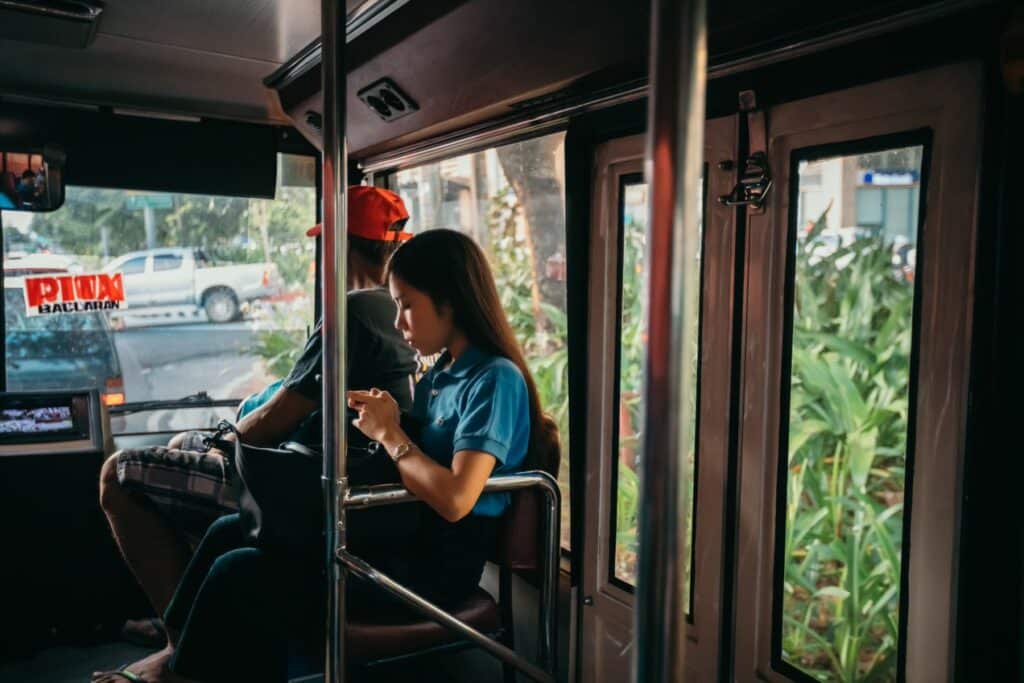
The growing transport sector unfolds new working opportunities for women from various fields. At Changing Transport we highlight the arduous work of them in this sector. This is Mega Kusumaningkatma’s story on how she started her career in transport despite of coming from a business background.
Mega started her career in 2018 at an international think-tank that focuses on clean transport. She worked as a consultant for vehicle emission standards and electric vehicle deployment in Indonesia, where she provided advice and science-based policy recommendations for public transport authorities.
Later in her carreer, Mega expressed her gratitude to her employer who offered extensive and productive training, access to international conferences on the advancement of transport technology. She recounted that her mentor opened up more opportunities for her when she began her career in transport. Initially, she had never planned to be involved in the transport sector as her background in accounting and management was a far cry from technical fields. However, the transport sector posed an exciting challenge: a promising long-term career in road transport.
The transport sector has become more complex over the years. A field that was once solving only the movement of people and goods now tackles problems on different fronts. In society, it has the potential to promote healthy living, a better environment, and a more human-scaled community. In governance, it promotes transparency and accountability in managing taxpayers’ money.
These areas will still be growing amidst economic and environmental challenges in the current world situation. It needs to involve extensive knowledge and diverse approaches. Hence, various competencies and cross-functional collaboration with multiple stakeholders are needed. For example, as observed in the Council for Decarbonising Transport in Asia, council members involved come from different fields of expertise such as energy, air quality, and land policy.
Mega explained that the road transport sector, for example, requires a vast range of skills, expertise, and academic backgrounds, from transport technology to socio-politics in transport-related issues.

The transport sector involves never-ending learning. Its value stems from its close links with geopolitics, high-level negotiations, and the sovereignty of the country. This is why it is not limited to those with an engineering background because it challenges everyone.
Mega Kusumaningkatma
People in the transport sector must always be watchful of incoming opportunities, particularly at high-level meetings such as The Group of Twenty (G20), which was held in Bali in 2022. The meeting gave rise to many ideas for improvement.
Mega’s experiences show that the transport sector is a field that constantly demands workers to upgrade their skills, expertise, agility, and cleverness. There is no room for repetition, so people should be creative in this sector.
In a dynamic transport sector, workers need to be well-prepared, diligent, innovative, and agile in keeping up with the latest trends, such as technological innovations, governmental regulations, and policy changes. They must also quickly adapt to changes within the industry, stay well-informed of international discussions in the media and civil society organisations, and contextualise international transport matters within the domestic context.
Up to this point, Mega has been independently learning about public policy processes, regulations, roadmaps, and sustainable development goals (SDGs). She also pays special attention to topics such as vulnerable groups (women and children, persons with disabilities (PWDs), and the elderly), the government’s political commitments, and urban planning. These issues are crucial in the road transport sector and should be mastered by researchers in the industry, even without direct assignment from employers and stakeholders.
Remember that without challenges, there is no room for growth. The transport sector has a sufficient number of competitive players, both leaders and customers. Therefore, we constantly need to push ourselves to set higher standards. As the world evolves, so does the transport sector, and we need to align with this trend.
Mega Kusumaningkatma
Her call for women is to emphasise the importance of mentorship since a mentor is someone who can guide women towards their goals and achievements.
NDC Transport Initiative for Asia (NDC-TIA) is part of the International Climate Initiative (IKI). The German Federal Ministry for Economic Affairs and Climate Action (BMWK) supports this initiative on the basis of a decision adopted by the German Bundestag. It supports China, India, and Viet Nam as well as regional and global decarbonisation strategies to increase the ambition around low-carbon transport.
 Female student rides from Cavite to San Beda, Manila ©Jilson Tiu, GIZ Philippines
Female student rides from Cavite to San Beda, Manila ©Jilson Tiu, GIZ Philippines

Sukma Larastiti
surel.sukma@gmail.com